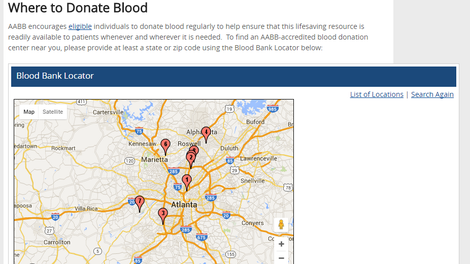Flyers advertising egg donation litter community boards at college campuses. “Make up to $8,000 while helping others” is a typical promise. But even though egg donation pays well and doesn’t require any experience (youth is actually a plus), the decision isn’t that easy. Your health and fertility may be at risk, the experience might be emotionally challenging, and the actual compensation may vary.
Technically, you can’t “sell” your eggs. But you can “donate” them and receive “compensation,” depending on the laws in your state and country. The money and good karma can be game-changing, but the egg donation experience is not right for everyone.
First, Do Some Soul Searching
A therapist will interview you to make sure you pass a mental health check before most agencies will let you sign with them, but there are many questions that you should ask yourself first.
- Do you want to help other people to become parents?
- How will you feel knowing that there is a child out there with your genes, but is not yours to raise?
- Do you think that you will want to know them?
- What if they want to know you?
- How would you feel if another family had a child with your genes if you later found yourself with kids of your own—or unable to conceive?
Once you’ve decided that egg donation is right for you, here’s how you proceed.
Have a Basic Understanding of Human Reproduction
People with ovaries have around 300,000-400,000 eggs at puberty. You don’t have to worry about running out of eggs because of an egg donation. You will lose the same number, roughly 1,000 each month, through your menstrual cycle whether or not you donate (and your body may also continue to make more, as well).
Normally, only one of your eggs fully develops each month. That egg can join with sperm to form a new blastocyst—which sometimes becomes the ever sought-after human baby. But in the donation process, you’ll take stimulating hormones that cause more eggs from that cycle to mature so they can be harvested.
Consider How You Feel About Unknown Risks
The long-term health of egg donors is poorly studied. Anecdotally, there are many instances of people having health and reproductive troubles after donation, but it’s difficult to say whether the hormones triggered them, or if they would have happened anyway.
For example, after one woman donated 10 times, she got cancer and attributed it to the donations, and there have been several other, similar anecdotes of former donors getting unexpected cancers. However, it’s impossible to know whether the donations actually affected their susceptibility to cancer without peer-reviewed, longitudinal studies—of which there are none on egg donors.
Ovarian Hyperstimulation Syndrome is also a concern for egg donors. Because the hormones donors receive make them ovulate an abnormal number of eggs at once (ideally 10 to 15, but sometimes more), they run the risk of enlarged and painful ovaries. OHSS is treatable and unlikely to cause long-term complications, but it’s several days of rapid weight gain, severe abdominal pain, and incessant nausea and vomiting. There’s no official data on how often egg donors get OHSS, but NCBI estimates that for donors who produce 20 or more eggs during a cycle, the risk of OHSS is 15%.
Qualify as a Donor
In order to donate your eggs, you must have plenty of healthy eggs (sorry to most men and some women.) You generally have to be in good health and be in a “normal” BMI range. Most U.S. agencies only accept donors between the ages of 18 and 29, sometimes making exceptions for people who have donated before. If you have a history of reproductive cancer in your family, that may disqualify you as well—for your own health.
When you apply, you will fill out a long form about your and your family’s health history. The agency wants to be sure that you aren’t likely to pass on a genetic disease like Huntington’s or cystic fibrosis. In some cases, if you’re at risk of passing on a recessive disease gene, the agency might accept you anyway and try to match you with a biological father who doesn’t have the same gene (since it takes two copies to pass this kind of disease to the offspring). Oddly, agencies don’t always bother to actually check your medical records.
Even if you’re not automatically disqualified, the agency may decide to reject your application anyway, or they may never find parents interested in your eggs. IP’s, or “intended parents,” are primarily concerned with their donor’s health, attractiveness, and intelligence, in that order. Matching with IP’s also depends on supply and demand—for example, Asian egg donors are in short supply, and will often get accepted with less fuss than donors of other ethnicities.
Choose an Agency
Applying to egg donation agencies is like applying to universities. You might get into the one you like the best, or none, or several, or just your backup. If several agencies accept you, you can leave your profiles in all their systems until one calls. Also, if one offers you more money than another, you can use that offer to negotiate.
You can find agencies on Google and Craigslist, on flyers and in ads in your campus newspaper. Or, you don’t have to go through an agency at all—you can donate directly to a friend or family member. However, agencies have expertise in navigating this potential minefield of emotions, laws, and health, so it might be safer and easier to go through them.
You do not have to choose an agency in your state or country. Many agencies are happy to work with your local clinic during the stimulation process, and then they’ll fly you in for the retrieval.
Finding a local agency is convenient, but it’s also very important to find a clinic that has a good reputation and will work with you in a way that you find mutually beneficial. Clinics in some areas pay better than others, for example. You may also want to ask whether the clinic follows the American Society of Reproductive Medicine’s ethical guidelines for egg donors.
While acceptance into an agency can be quick once the paperwork is filled out, being matched with IP’s can take weeks, months, or years.
Be an Advocate for Yourself and the Child
Read the contract that you sign with the agency and ask questions about it. If you feel uncomfortable with parts of it, re-negotiate. Some agencies require that you pay them for your medical expenses if you decide to not to go through with the donation halfway through. If you can’t afford to potentially lose money, tell the agency that you will not accept that as part of the contract.
If a child is born via your eggs, you will be the biological mother, but not the legal guardian. You waive all rights and responsibilities. You cannot say how the child is raised, and the IP’s cannot demand care from you.
You can require anonymity in the donation, in which case the child can never find you, which is the norm. However, you might want to talk to someone who is adopted and ask how they feel, or would feel, if their biological parent mandated anonymity, and how important it would be for them to have any sort of contact. Is it ethical to help make a child, but then refuse to let them know your name? (Don’t worry, if the child can contact you, they aren’t likely to ask for money. Remember that they have rich parents who can afford tens, or even hundreds of thousands of dollars of fertility treatment. And besides, you don’t owe them anything, except maybe the truth.)
One of the most important ways to understand the ethics of egg donations, advocating for yourself, and doing what’s best for the child, is to research the community and talk to other egg donors. We Are Egg Donors is an advocacy group by and for egg donors, which includes a blog and a Facebook discussion group. On the blog, you can read about positive experiences, like one about how egg donation saved a woman’s future pregnancy. Or you can read horror stories of pain and drama following donation. It also contains articles with practical messages, such as this one from someone who fought back against an unfair charge that her agency tried to get her to pay.
Complete the Donation
The process is functionally identical to harvesting eggs from someone who wishes to freeze them. You take daily injections of of several medications including hormones for a few weeks to encourage your body to mature more eggs than usual. You have to go in for regular ultrasounds during the weeks of injection to see how the eggs are forming. Then you get a hormone “trigger,” so they are ready to be harvested. If you are donating in another state, you fly to the clinic’s city and stay for a few days. You have a minimally invasive surgery, in which the doctor puts a tube with a suctioning needle at the end of it in your vagina, through your uterus towards the ovaries. The tool punctures and sucks the eggs from each ovary.
Doctors can then fertilize your eggs with sperm from the donor or intended parent, and implant them in either an IP or a surrogate. The genes were yours, but the baby is theirs.
Finally Get Paid
How much money you receive depends on a variety of factors, including supply and demand. Until last year, the American Society of Reproductive Medicine said that compensation beyond $10,000 “goes beyond what is appropriate.” Donors sued the ASRM, arguing that there should not be a limit to compensation, and the ASRM removed the limit from their ethical guidelines in the resulting settlement. Agencies in the U.S. often offer around $8,000 for first donations, give or take a few thousand. Second-time donors get higher compensation, if they have a proven record of completing the cycle and producing healthy eggs.
Supply and demand is a major force affecting how much a donor might receive. Asian donors receive more than other ethnicities, and donors who went to Ivy Leagues and who are good athletes can negotiate higher compensation as well. Some agencies offer a flat rate, whereas others are open to negotiation based on the supply and demand for your genes. One couple offered $100,000 to the right donor. Donor compensation is considered taxable income in the U.S. However, several people have appealed and won.
Egg donation can be a beautiful thing for a lot of donors, who may feel great about giving the gift of life, and who can use the money to fund their dreams or college educations. A fairly quick $8,000 in your 20s can easily change your life. But it’s not as simple as the smiling stock photo models on the egg donation advertisements might make it seem. Some donors experience physical problems and emotional issues that make them regret the experience. Others consider it just a favor to some strangers and a quick buck. Remember to advocate for yourself, and hopefully it will be the latter.






 madcow3417
madcow3417 Kristin Hugo
Kristin Hugo K8poreon
K8poreon dudebra
dudebra RozenBell
RozenBell